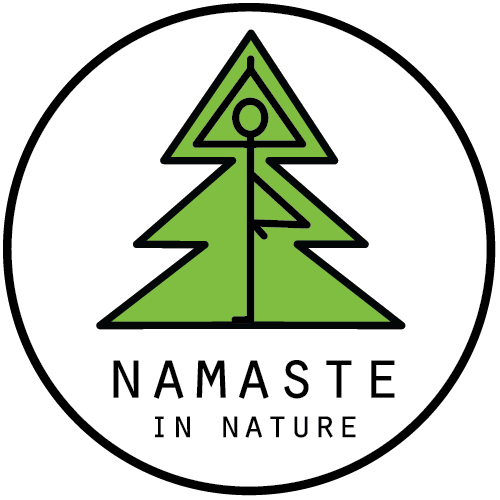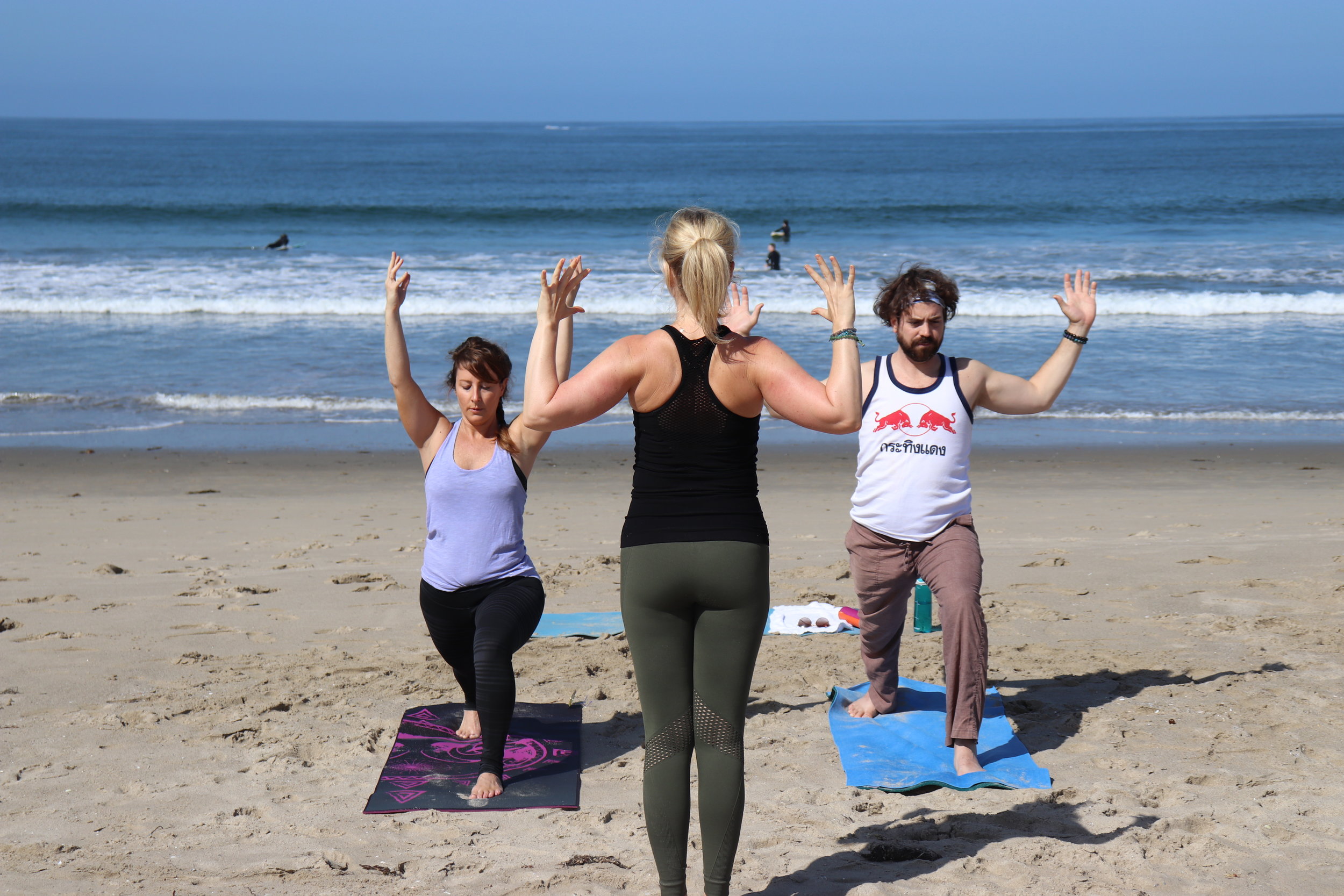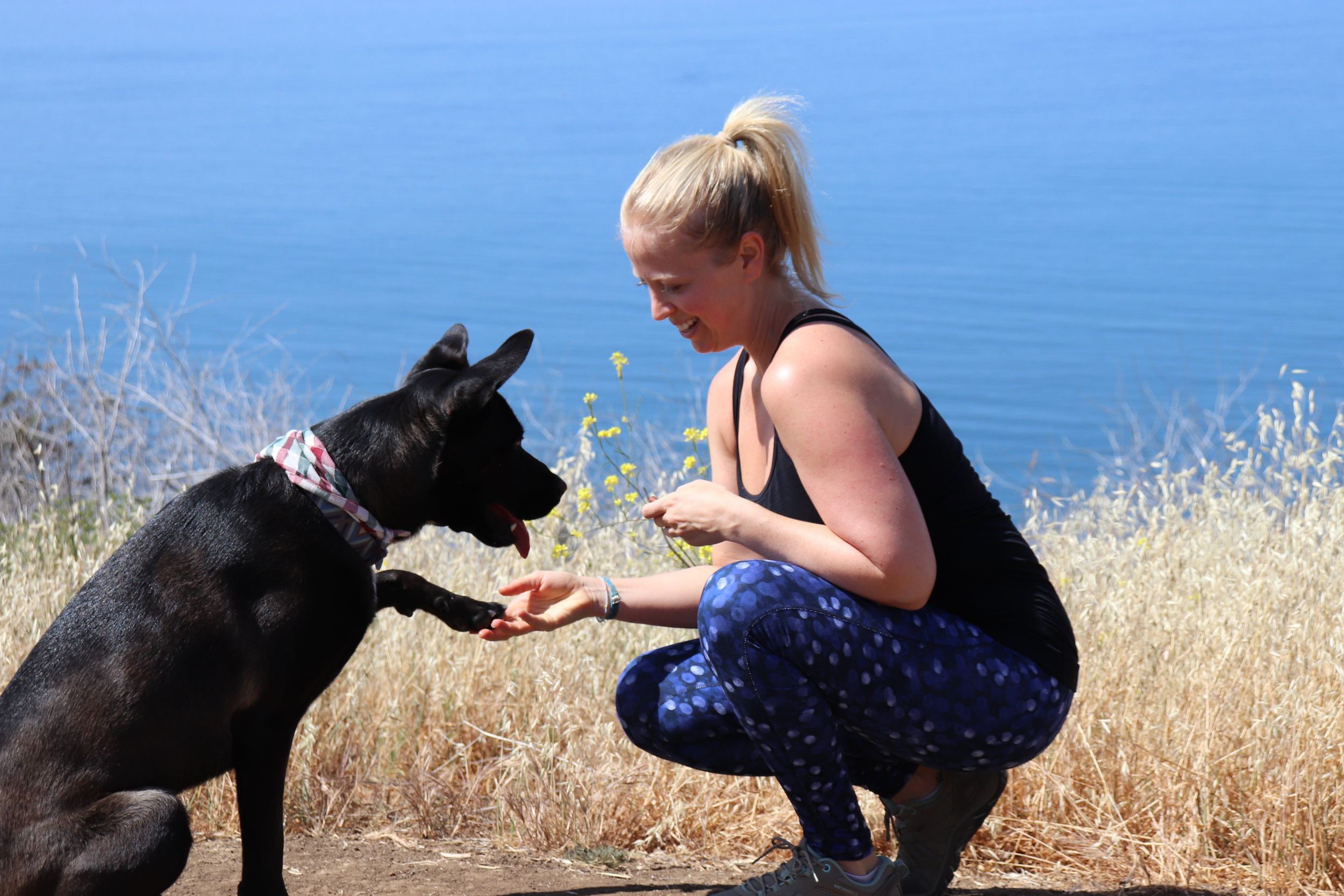How to Start Eating Healthy for Your Body, Your Mind and The Environment
This is the second post in my series of Pre-New Year’s posts about how to start or increase healthy habits like hiking, healthy eating, yoga and meditation.
What is Healthy Eating? It’s impossible to create a single definition or diet that works for everyone. There is no magic pill/diet/food/product/cleanse that will solve everyone’s problems. Every body is different and requires a personalized solution creates a lifestyle that is sustainable for the person and ideally, sustainable for the environment, too!
I learned so much from this interview with Dianna Marino, a Registered Dietitian Nutritionist (RD, RDN) with a Masters Degree in Nutrition Education from Columbia University and RYT-500 (Registered Yoga Teacher). Her nutrition philosophy stems from a place of Intuitive Eating, listening to your body and making peace with food. She also believes using yoga and meditation can help cultivate a mindfulness when it comes to your health and making food choices.
She is also a personal friend and sorority sister. (Aww Delta! Aww Zeta!) Dianna currently lives in Santa Monica but virtually counsels nutrition clients and teaches yoga classes online via diannamarino.com.
Keep reading to learn more about how healthy eating can be affordable, make you feel better both mentally & physically and how eating more plants can help our planet! There’s also a limited time special offer at the end of this post if you’d like to work with Dianna!
Namaste & Have A Great Day!
-Miranda
Yoga on the Beach = So many health benefits!
How do you define healthy eating?
This is a tough question because it will be a different definition for everyone. For me, I believe healthy eating is listening to what my body wants and needs, not stressing over what I am or I'm not eating, and having a peaceful relationship with food. All of this with the intention of fueling my body with nutritious foods that make me feel good.
It's overwhelming how many different diets and food choices are available today. How do I know what's best for my body? Where do I even start?
As an anti-diet Dietitian, I advocate eating intuitively and mindfully as opposed to following specific diets. Start with paying attention to what you feel like eating. Do you make food choices based on what you think you should be eating or what you actually want to eat? Our bodies can tell us so much about what we need, yet we've been conditioned not to trust ourselves through messages from diet culture. Pay attention to how certain foods taste to you and how they make you feel afterward. Choose foods that make you happy, satisfied, and feel good.
I've tried diets before and can't stick with them. Is there something wrong with me or wrong with the diet?
Research has proven over and over that diets do not work. Most diets are not satisfying or sustainable ways of eating that you can maintain for the rest of your life, therefore, once you can no longer stick to the diet you will most likely feel defeated and the sense of failure. But you are not the problem, the diet is. That is why as a dietitian, I do not recommend diets to my clients; why would I want to set them up for failure? Finding a sustainable way of eating that feels good for you is much healthier, for your body and mind.
How much of my health is based on genetics and how much is based on diet/lifestyle?
Our genetics give us a predisposition for many different things. However, your lifestyle can play a large role in whether or not these genes express themselves. This is why eating nutritious foods, finding joyful movement, and reducing stress can reduce the risk of disease and improve quality of life.
Which foods are good and which foods are bad?
This is an idea that I personally do not subscribe to. Thinking about foods as good or bad contributes to stress over eating and a harmful relationship to food. When all foods are accepted, there is no more shame or guilt over food choices. It has been proven that when people give themselves unconditional permission to eat all foods, they tend to eat more of a variety, have an improved nutrient intake, and may even lose weight.
Do I have to completely give up any foods to eat healthy?
No, in fact quite the opposite. Incorporating more foods into your diet gives us more of a variety when eating, increases nutrient intake and keeps us satisfied with our eating experiences. Of course any food allergies, sensitivities, or intolerances are a different story. That is why it is important to notice how foods make you feel. If a food makes you feel physically uncomfortable, then eliminating or reducing that food in your diet may be a sensible choice.
Which is more important for losing weight? Diet or exercise?
First, I would wonder why someone is in pursuit of weight loss. If weight loss is necessary for someone's health, diet and exercise both play a large role. However, if the diet and exercise being used in the effort of weight loss are contributing to stress, this can be more dangerous to one's health than the food they are eating. This is why finding a sustainable, enjoyable way of eating while incorporating nutritious foods is just as important as finding an enjoyable form of movement that truly makes you happy.
Include a variety of fruits and veggies in your meals.
What is a plant-based diet and what are the benefits of it?
A plant-based diet consists of eating primarily plant foods like vegetables, fruits, nuts, seeds, whole-grains, legumes, and beans. It does not necessarily mean you need to be completely vegetarian or vegan, but these foods will comprise the majority of your diet. There are numerous health benefits to eating this way including: reduced risk of heart disease, lower blood pressure, reduce risk of diabetes, increased energy, and increased longevity. Not to mention the benefits for the planet. Animal and dairy farming is one of the largest contributors to the destruction of our planet, and the more people that adopt a plant-based diet, the more we can help to reduce this impact.
How can I eat healthier without spending a lot more time and money to do it?
Eating nutritious foods does not necessarily need to be expensive. Choosing a plant-based diet can actually help save you money, since animal products like meat, eggs, and dairy are usually more expensive than plant alternatives. However, healthy eating means choosing foods that you enjoy and make you feel good. Meal prepping is a great way to save time when it comes to your food. Choosing a couple days a week like Sundays and Wednesdays to prepare your lunches or easy to grab breakfasts can make choosing foods less stressful and ensure you have a meal you will enjoy. Even easy prepping like pre-chopping your veggies can help be a time saver for cooking dinners.
How do I stop self-destructive or negative thoughts & patterns when it comes to food?
Identifying these thoughts and patterns is a huge step in itself. Once you have identified a negative thought pattern, I like to trace it back to where it stems from and what it really means to you. Then we can discover alternative thoughts, or facts to replace them with. It is helpful to work with a dietitian or a therapist to work through this process.
What is intuitive eating?
Intuitive Eating is about listening to your body and making peace with food. Think about the way a small child eats, as we are all born with the capability to eat intuitively. Studies show that without interfering, small children will eat what they want to, stop when they are full, and get what their body needs. Of course this is easier when we are not yet listening to the damaging messages about good/bad foods and body image from diet culture and society. These messages are what get in our way of being intuitive eaters as adults. My goal is to help people overcome these damaging messages and come back to their innate Intuitive Eating skills.
What is body positivity?
Body Positivity is about acceptance of all bodies, shapes and sizes. It is about not shaming or stigmatizing people in bigger bodies, but appreciating all body types. Finding acceptance in our body can be difficult when we get so many messages about what we should be eating or how we need to exercise to look a specific way that is considered "beautiful" by societal standards. Learning to appreciate your body for all that it does to keep us healthy and alive rather than focus on what size jeans you can fit into is part of the goal.
Can yoga/mindfulness/meditation help me start and maintain healthy eating habits?
Yes, yoga and meditation are great ways to encourage mindfulness when it comes to eating. Practicing yoga and meditation regularly helps to bring us back into our body, slow down, and be more conscious. When we bring these qualities to our eating experiences, we can better taste each bite, savor the meal, notice when we are becoming full, and stop when we feel satisfied, creating a truly mindful eating experience.
Dianna loves to hike the west coast with her dog, Kai.
Can spending time outside in nature encourage better nutrition?
For me, spending time in nature is part of how I practice self care. I know that it brings me joy, helps me release stress and find calmness. Practicing self care in which ever way it comes for you, can help to encourage healthy behaviors in other areas of your life, including nutrition.
What foods have the most negative impact on the environment? What foods have the least negative impact on the environment?
I would not consider myself to be an expert in this particular field, but I do know the impact animal and dairy farming has on the environment. It takes much less energy and water and other resources to grow plant based sources of protein and they do not contribute as much greenhouse gas emissions and waste as animal farming. This is a big reason why I have personally decided to reduce my intake of animal products. The more people who eat more plant based protein like lentils, beans, legumes, whole grains, seeds, and other meat replacements, the more we can help to reverse the negative impacts of the meat and dairy industries.
Should I eat different foods during different seasons (Winter/Spring/Summer/Autumn)?
Eating seasonally, meaning to eat which foods are naturally grown during the current season in your area, can also help the environment and support local farmers. Your body may crave different foods in different seasons as well, for example eating heartier, hot meals in the winter may sound more appealing than in the summer time. Again, its about what makes you feel good, physically and mentally.
Shopping at local Farmers Markets reduces the amount of carbon emissions needed to transport your food.
Why is organic food more expensive and does it really make a difference?
Growing organic foods takes more time and care and is usually done in smaller farms. Conventional farms can be subsidized through the government making it cheaper for you to buy at the store. Some fruits and vegetables are more important to buy organic than others based on the amount of pesticides used. You may have heard of the "Dirty Dozen" list or the "Clean Fifteen" by the Environmental Working Group. These are lists you can easily find online that include the top fruits/vegetables with the most pesticide residue vs the list with the least. For those on the Dirty Dozen list, you may consider buying organic to reduce your consumption of pesticides. The effects of the pesticides and hormones used in conventional foods have been linked to health issues like infertility, cancer, asthma, neurological issues, and ADHD and birth defects. Organic foods may also have higher nutrient content and better flavor than conventional foods, and are better in the long run for the environment.
How do I help my partner/kids/family members/friends eat healthier too?
Lead by example! When it comes to eating intuitively and having an impact on those around you, I think it is important to never speak about your body or anything you have chosen to eat in a negative way. You never know how you are impacting someone else around you. When it comes to children, parents are the strongest role models in eating behaviors. Showing children that they can trust their bodies to know what to eat, not labeling foods as good or bad, and not placing any rules about food can be a great way to let their innate Intuitive Eating skills flourish. Let your family be a part of the meal planning process and have them help in the kitchen, too.
Are there any tools/resources you recommend to help me eat healthy?
Of course I would recommend working with a Registered Dietitian. It's a great way to learn more about nutrition and help with any other issues around your diet and health that you may be experiencing.
Dianna is offering new clients 15% off any services for the month of December 2018. Visit diannamarino.com to learn more, schedule a FREE 30 minute consultation and/or book personalized nutrition and yoga services.
And if you love Dianna’s logo, website, branding, photography and videos, and want something similar for yourself or your company, email mirandapetersonconsulting@gmail.com.







